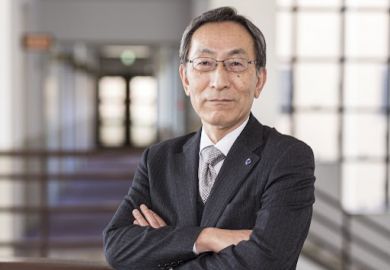The head of a UK research funder has defended the end of public support for an academic thinktank focused on the UK’s post-Brexit relationship with Europe.
The Economic and Social Science Research Council (ESRC) faced widespread criticism after the UK in a Changing Europe (UKICE), based at King’s College London since 2014, warned that it faced an uncertain future beyond its current grant next April.
Among those voicing disapproval were Sir David Lidington, the former Europe minister, who said it was a “regrettable decision by ESRC which they should reconsider”. Layla Moran, the senior Liberal Democrat MP, said it was “such a short-sighted decision”, while Sir Anton Muscatelli, the University of Glasgow principal, described it as “astonishing and very sad”.
Alastair Campbell, the former Downing Street director of communications, said: “Very bad news. If one subject requires serious detailed fact-based analysis it is Europe. Because we don’t get much of it from our media or politics right now.”
Lionel Barber, the former Financial Times editor, said the “bonkers” decision was “nothing less than intellectual vandalism”, while Rachel Wolf, a founding partner of the consultancy Public First, said: “What a stupid decision. God forbid academics do relevant, interesting work that changes the political and policy environment. That’s definitely a waste of money.”
Responding to the criticism, Stian Westlake, the ESRC’s executive chair, said that the council had provided UKICE with £16.5 million over the years, with its grant most recently renewed in 2022.
At that stage, he said, the funding panel recommended that any future grant could only come via open competition with other projects “and that UKICE would need to consider this and plan accordingly for its longer-term financial future – not least because our next open competition for impact-focused projects like UKICE is expected to be in the 2025-26 financial year, after the current UKICE funding ends in March 2025”.
“Without ending funding for projects, it would be impossible to fund new and innovative projects (including, of course, UKICE when it first applied for funding),” Mr Westlake said.
“Open competitions for funding are one way to lend some fairness to the inherent challenge that any applicant faces; providing advance notice of the end of funding programmes is one way to mitigate the effects this will have on projects already receiving funding.”
Mr Westlake said that UKICE had “articulate[d] insights from the social sciences on a matter of pressing public importance in a way that is timely, concise and intelligible to non-experts. This has greatly enriched public discourse, and has injected facts and rigour into a debate where truth-seeking has often taken a back seat to partisanship.”
He said that ESRC planned to run new competitions for impact-focused projects in the coming year, although he acknowledged that this was “not a promise of future funding for UKICE”.
Anand Menon, UKICE’s director, said that the thinktank had “hoped – and strived – for another outcome” in relation to its ESRC funding.
He said that the team would “of course consider all options to try and preserve the brand”.




